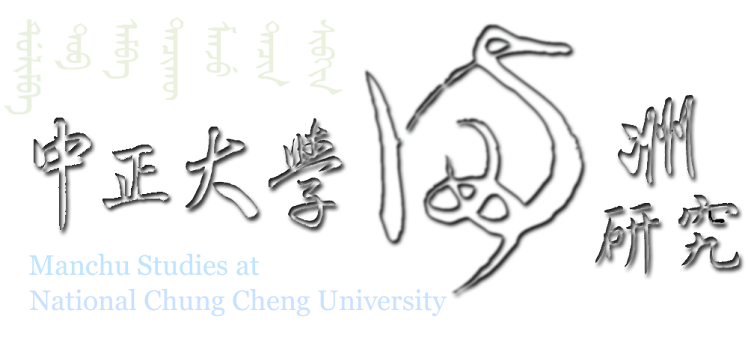Memorial Minute
(From the Library of Prof. Tak-sing Kam)
Joseph Fletcher (1934-1984) exerted a tremendous influence on the development of the fields of Chinese and Central Asian history, the scale of which is all the more noteworthy for the brevity of his academic career. Endowed with a remarkable aptitude for foreign languages, wide-ranging interests, and a passion for teaching, Fletcher spent nearly the entirety of his academic career at Harvard. He earned his A.B. from Harvard in 1957, was a Junior Fellow in the Society of Fellows from 1962 to 1966, and received his Ph.D. from the Department of Far Eastern Languages in 1965. He then joined the faculty of Far Eastern Languages as an assistant professor in 1966 and was promoted to Professor of Chinese and Central Asian History in 1972. He remained in this position until his untimely death, from cancer, on June 14, 1984.
Fletcher’s studies of Central Asia and the Inner Asian frontiers of China were enabled and augmented by his linguistic talents. In addition to the languages of Western Europe, he also read Arabic, Chinese, Russian, Japanese, Mongolian, and Manchu. He brought all of these languages to bear on his scholarship, which covered a wide range of subjects stretching from the forested coastlines of Manchuria to the mosques of the Middle East. His dissertation, completed under the tutelage of his mentor Francis Cleaves, was a close textual study of the seventeenth century Mongolian chronicle known as the Erdeni-yin Erike. He worked extensively on problems related to the history of the Qing Empire, and was among the first to argue forcefully for the integration of Manchu sources into the historiography of China’s final dynasty. His contributions to the Cambridge History of China were widely acclaimed for demonstrating the importance of the Inner Asian frontier to the governing consciousness of the Qing rulers, and thereby balancing the earlier tendency to focus on coastal interactions with the West as the primary window through which to understand Qing foreign relations. In his later years he turned to the subject of Islam in China, working particularly on the connections between eighteenth century Chinese Islam and widely Islamic currents in Central Asia. Although he never finished a book, he published dozens of articles and prepared many more manuscripts that remained unpublished at the time of his death. Some of these were subsequently edited and released by his former colleagues and students.
A dedicated teacher, Fletcher taught Manchu and Mongolian, graduate seminars in Inner Asian history, and a popular general education course for undergraduates on the history of Mongol Empire. Despite being diagnosed with terminal cancer, he continued to teach through the final year of his life, and passed away less than a month after submitting grades for the spring semester. In 1983, he was awarded the Levinson Teaching Prize, an annual award given to the best teacher of undergraduates at Harvard University.
(EALC, Harvard)
(中正大學滿洲研究班甘德星提供)
Fletcher’s studies of Central Asia and the Inner Asian frontiers of China were enabled and augmented by his linguistic talents. In addition to the languages of Western Europe, he also read Arabic, Chinese, Russian, Japanese, Mongolian, and Manchu. He brought all of these languages to bear on his scholarship, which covered a wide range of subjects stretching from the forested coastlines of Manchuria to the mosques of the Middle East. His dissertation, completed under the tutelage of his mentor Francis Cleaves, was a close textual study of the seventeenth century Mongolian chronicle known as the Erdeni-yin Erike. He worked extensively on problems related to the history of the Qing Empire, and was among the first to argue forcefully for the integration of Manchu sources into the historiography of China’s final dynasty. His contributions to the Cambridge History of China were widely acclaimed for demonstrating the importance of the Inner Asian frontier to the governing consciousness of the Qing rulers, and thereby balancing the earlier tendency to focus on coastal interactions with the West as the primary window through which to understand Qing foreign relations. In his later years he turned to the subject of Islam in China, working particularly on the connections between eighteenth century Chinese Islam and widely Islamic currents in Central Asia. Although he never finished a book, he published dozens of articles and prepared many more manuscripts that remained unpublished at the time of his death. Some of these were subsequently edited and released by his former colleagues and students.
A dedicated teacher, Fletcher taught Manchu and Mongolian, graduate seminars in Inner Asian history, and a popular general education course for undergraduates on the history of Mongol Empire. Despite being diagnosed with terminal cancer, he continued to teach through the final year of his life, and passed away less than a month after submitting grades for the spring semester. In 1983, he was awarded the Levinson Teaching Prize, an annual award given to the best teacher of undergraduates at Harvard University.
(EALC, Harvard)
(中正大學滿洲研究班甘德星提供)


沒有留言:
張貼留言